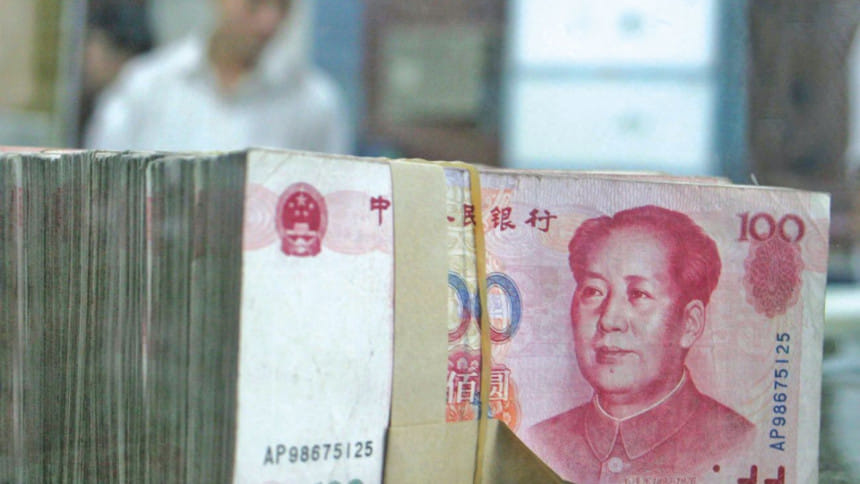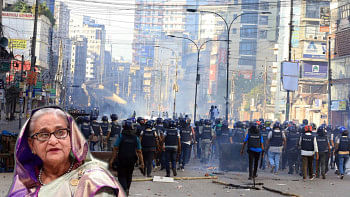Is the Renminbi ready to go global?

Towards the end of this year, the International Monetary Fund (IMF) will decide on whether to include the Chinese Renminbi (RMB) in its basket of currencies represented by the Special Drawing Rights (SDR). The SDR is an international reserve asset comprising of an elite league of currencies - the U.S. Dollar, Pound Sterling, Japanese Yen and the Euro. Acceptance into this league means China will become the first emerging economy to play host to a global reserve currency. Most importantly, it will substantiate China's growing leadership role in the international monetary system. But taking on this role needs to be supported by economic fundamentals – does China merit this coveted status from an economic standpoint?
Traditionally, the RMB has been carefully managed by the People's Bank of China (PBoC) and its 1.9 percent devaluation on August 11 was the largest one-day drop since 1994. This was followed by further rounds of devaluation the very next two days. This critical decision to devalue the currency was fueled by two major factors. First - to meet the IMF's market-based pricing demands for inclusion into the SDR basket; second, to revive its fledgling economy. There is little argument against the fact that China's conventional investment-export economic model seems to have run out of steam and growth has entered shaky terrains. It will take quite some time before the government is successful in transitioning the economy to the much healthier consumption-based model. In such a scenario, would central banks be better off with the RMB as part of their reserves given that it would bring along significant country-specific risk?
The true characterisation of an international reserve currency is earned when investors feel safe in putting their wealth in it, especially during global volatility. Is that the case for the RMB? Investors will be aware that this is not a temporary slowdown in China. After all, China refused to devalue the RMB during the global and the Asian financial crises. It is a testament to the severity of the downward growth trajectory that has prompted the central bank to undertake this historic change in exchange rate policy. Also, one cannot rule out further episodes of depreciation in China. This in turn will make Renminbi-denominated assets less attractive to investors, leading to lower foreign investments and possibly, capital outflows.
The issue of capital flows raises a key requirement of a global reserve currency – it has to be "freely usable". This necessitates full capital account liberalisation. China's capital account, although has become relatively more open in recent years, still does not match the level of openness that one would associate with a global reserve currency. Trade credit, offshore borrowing, inward and outward portfolio investments are all subject to control at varying degrees. The interest rate is not market-determined.
Pressure from the IMF suggests that, with time China will indeed move towards a more open capital market. But that creates other challenges for Asia's largest economy. With growth slowing and an impending U.S Federal funds rate hike, the country will face significant risk of net capital outflows. This will hurt the economy even more, compelling the government to intervene - the very concept the potential reserve currency holder is trying to move away from.
China's long history of regulatory intervention will now be put to the test as PBoC tries to make the RMB reserve-currency material. Transitioning to an intervention-free exchange rate regime any time soon is unlikely since the RMB is still overvalued. Especially since the U.S Dollar has significantly strengthened in recent months and the RMBhas been pegged to it throughout. Essentially, the RMB has appreciated as well against other currencies. This implies that allowing the exchange rate to float would lead to further devaluation. China would want to avoid a devaluation scenario comparable to the recent one, given that it could lead to currency wars with major trade partners and other advanced economies. Such episodes would be politically harmful for the country at a time when it is trying to gather support from much of the world in its bid to take on greater share of global financial leadership; meaning, intervention would still be necessary.
Finally, a potential reserve currency needs to be backed by mature financial markets. However, China's equity market still does not possess quality institutional investors like other reserve-currency holders. According to Reuters, 85 percent of trade in the equity market is retail. This is mostly individuals who do not have the investment acumen necessary to make prudent calls and end up contributing to equity price volatility. On top of that, China's bond market is only 51 percent of GDP, as of March 2015. The figure for the United States is around 220 percent. Former U.S. Fed chairman Ben Bernanke warned that China's bond market needs to have much more depth for the country to have a viable reserve currency.
As a takeaway, we need to remember that internationalisation of a currency has its fair share of responsibilities in terms of establishing stability in the global monetary system. These responsibilities will be challenging to fulfill if the host economy itself is not supported by economic fundamentals. The story does not end at just getting the status and a symbolic victory.
The writer is a macroeconomic analyst based in Washington D.C.

 For all latest news, follow The Daily Star's Google News channel.
For all latest news, follow The Daily Star's Google News channel. 



Comments